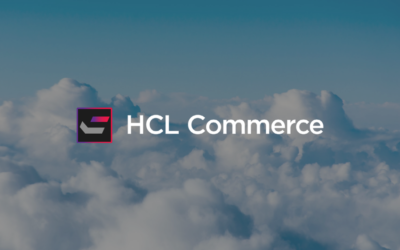The digital revolution has reshaped the way businesses operate, and B2B e-commerce has emerged as a critical avenue for growth. However, transitioning to B2B e-commerce is challenging, and one significant hurdle is gaining acceptance from your sales team. This...
Insights
Moving eCommerce to the Cloud: Three Factors to Consider
BlueSky Commerce Blog
Featured
Related Posts
Stand Out from Your Competition
Customer expectations continue to rise. Digital consumers want a faster, more personalized, and effortless "in the moment" experience and won't hesitate to move to your competitor to get what they want. Competition has never been greater - but the ability to stand...
Have Questions?
Get In Touch

BlueSky Commerce
- BlueSky Commerce Partners with commercetools
- KLaunch and BlueSky Commerce Announce FoodBridge, An AI-Powered E-Commerce Solution Created for the Financial Stability of Food Banks
- Catch up with BlueSky Commerce at Shoptalk 2023!
- Industry E-Commerce Sales Veterans Leading the Way at BlueSky
- BlueSky Sponsors Brooke’s Place 2022 Hope Fore Tomorrow Golf Outing June 6, 2022
- BlueSky Commerce announces strategic partnership with Fluent Commerce
- 7 Ways to Modernize Your E-Commerce Site Design
- Creating a Digitally Native Culture: A 360 Approach to Digital Transformation
- How to Take Your B2B Brand Direct-to-Consumer
- BlueSky Commerce Sponsors Brooke’s Place Hope Fore Tomorrow Golf Outing
Follow Us
Moving eCommerce to the Cloud: Three Factors to Consider
These days, it seems that everyone is “moving to the Cloud.”
But what does that truly mean for an eCommerce operation? Whether you’re considering adding a digital channel for the first time, are debating a change in platforms, or are looking for an upgraded solution, the following are just three of the factors you should consider when evaluating a Software as a Service (SaaS) cloud solution.
1. Financial Impact
When you’re weighing the financial impact of any eCommerce implementation, there are three main categories of cost to consider.
Software licensing
The cost of owning a perpetual software license, whether it’s purchased directly or through a third-party vendor.
Hosting
The cost of servers, network, data and bandwidth usage, whether you choose on premise or external hosting.
Managed Services
These costs include IT services, infrastructure support, patching and updating servers, security and disaster recovery planning.
After the initial upfront cost of implementation, cloud solutions spread the cost of software, hosting and managed services evenly over a three to five-year period. Your cloud contract gives you the rights to use the solution, however, there is usually no asset associated with the investment, so the associated costs are generally considered an operating expense.
With the initial purchase of software licenses and infrastructure, as well as implementation services, traditional on premise and hosted implementations usually qualify as assets and are generally considered a capital expense. Knowing that difference, you can look at the costs and think about implementation from a finance and accounting perspective to determine which avenue makes the most sense for your business.
2. Scalability
Traffic and transaction volumes are also important factors to consider as you look at cloud solutions. Is your store affected by seasonal events like Cyber Monday or Back-to-School season? Or, do you maintain relatively steady, consistent traffic year-round?
It’s worth noting that traditional, on premise eCommerce solutions can be complicated, costly and slow to scale. Requiring infrastructure and IT investment, traditional eCommerce solutions make dynamic scalability difficult and problematic, at best.
On the other hand, cloud-based eCommerce solutions are structured to support heavy ebbs and flows in traffic. Not to mention, your business will be relieved of the infrastructure and IT burden as those elements are outsourced to the vendor. When selecting a vendor, discuss your traffic patterns and ensure that vendor is set up to service your infrastructure — do some digging and ensure they’ve had previous success with clients whose traffic patterns are similar to your own.
3. Company Focus
Is software hosting and management a core competency for your business? Are you bogged down by technology that prevents you from focusing on the areas of your business where you and your team can truly make an impact?
If, like many companies, your focus is on driving revenue from your products and services rather than maintaining and patching servers and software, then a cloud-centric solution likely makes the most sense. Choosing a SaaS provider you trust to support and run the technical elements of your eCommerce site will allow you to get back to the core of your business.
Contact us today to see how we can help you.
At BlueSky, we’ve helped clients navigate through these decisions and build a path to be successful in the cloud.
Start the Conversation
BlueSky’s unmatched commerce expertise allows us to help our clients understand how to utilize omnichannel and business solutions to reach, attract, engage, and grow customers.

Related Posts
Meet BlueSky Commerce at Envision B2B!
BlueSky Commerce is thrilled to announce that we will be exhibiting at the Envision B2B conference in Chicago! We invite you to join us at this exciting gathering of industry leaders, innovators, and forward-thinking eCommerce professionals, as we shape the future of...
Join your peers for a HCL Commerce User Group in Raleigh!
HCL Commerce User Group & Networking Event It's been a while since we've gotten together! We are all looking forward to the chance to collaborate and discuss the latest exciting HCL Commerce updates. Join us to take a look at the HCL Commerce product roadmap, hear...
Introducing New HCL Commerce Starter Store
BlueSky Commerce and HCL Commerce co-developed "Ruby" You may be hearing some buzz lately about “Ruby” - the new HCL Commerce React-based starter store. Ruby is a production-ready starter storefront, available for HCL Commerce clients, starting in summer 2023. HCL and...



